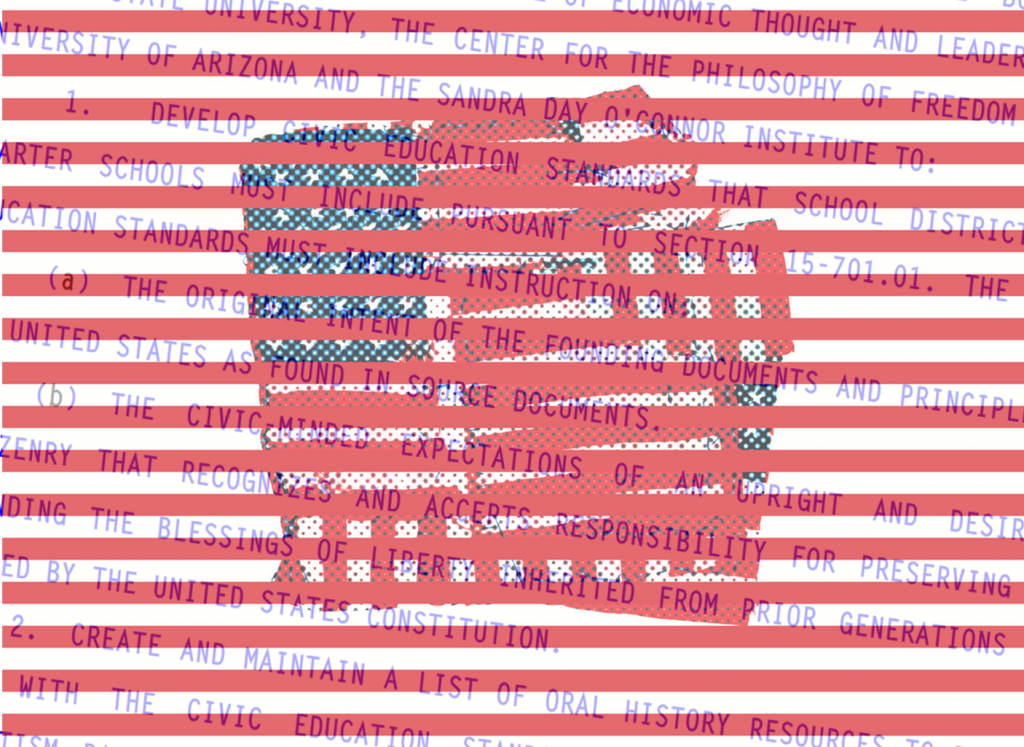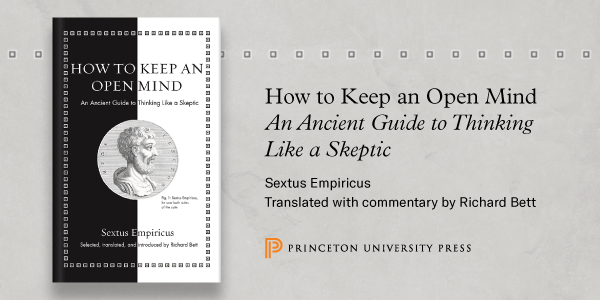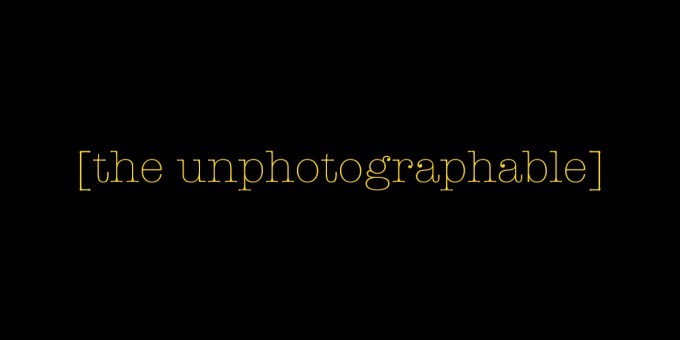To help families, civic institutions, local communities, school district governing boards and charter schools prepare students to be civically responsible and knowledgeable adults, the State Board of Education shall work with the School of [Civic and] Economic Thought and Leadership at Arizona State University, the Center for the Philosophy of Freedom at the University of Arizona, and the Sandra Day O’Connor Institute to:
[image: manipulation of the cover of “Standards” by Tortoise]
What to make of all this? On the one hand, having philosophers help develop a state’s K-12 curriculum might have been an interesting and highly visible example of a type of public philosophy. On the other, the proposed legislation appears to push for a rather constrained and propagandistic set of standards, and seems of a piece with other recent efforts by state legislatures around the country to limit critical discussion of the United States in schools.

-
- Develop civic education standards that school districts and charter schools must include pursuant to section 15-701.01. The civic education standards must include instruction on:
While considering the state budget bill for 2021-22, the Arizona House of Representatives last month approved an amendment to it that would have required the state’s Board of Education to work with the University of Arizona’s Center for the Philosophy of Freedom and others to develop a civic education standards for high schools emphasizing “the blessings of liberty” and “portraits in patriotism.”
(a) the original intent of the founding documents and principles of the United States as found in source documents.
-
- Create and maintain a list of oral history resources to be used along with the civic education standards that provide portraits in patriotism based on first-person accounts of victims of other nations’ governing philosophies who can compare those philosophies with those of the United States.
The amendment, from Representative Judy Burges, would have added an “American civics education” to the competency requirements for high school graduation that includes “a comparative discussion of political ideologies, such as communism and totalitarianism, that conflict with the principles of freedom and democracy essential to the founding principles of the United States” (section 15-791.01). The amendment elaborates on this requirement and how it would be developed:
(b) the civic-minded expectations of an upright and desirable citizenry that recognizes and accepts responsibility for preserving and defending the blessings of liberty inherited from prior generations and secured by the United States Constitution.
When I asked David Schmidtz, director of the Center for the Philosophy of Freedom, about the Center’s inclusion in the amendment and what he or others had done to make that happen, he said he had not been consulted or informed about it and that he did not know how the Center would have complied with the proposal had it become law, but that the Center is pretty well-known locally.

You can read the entire amendment here. The current Arizona school standards in history and social sciences are here.
Though the amendment passed in Arizona’s House, it was removed during negotiations in the Senate and was not in the final budget bill recently signed by Arizona governor Doug Ducey. Included in the budget bill, though, was continued state support specifically for the Center for the Philosophy of Freedom—.5 million for the coming year (this funding itself has been a subject of controversy).




